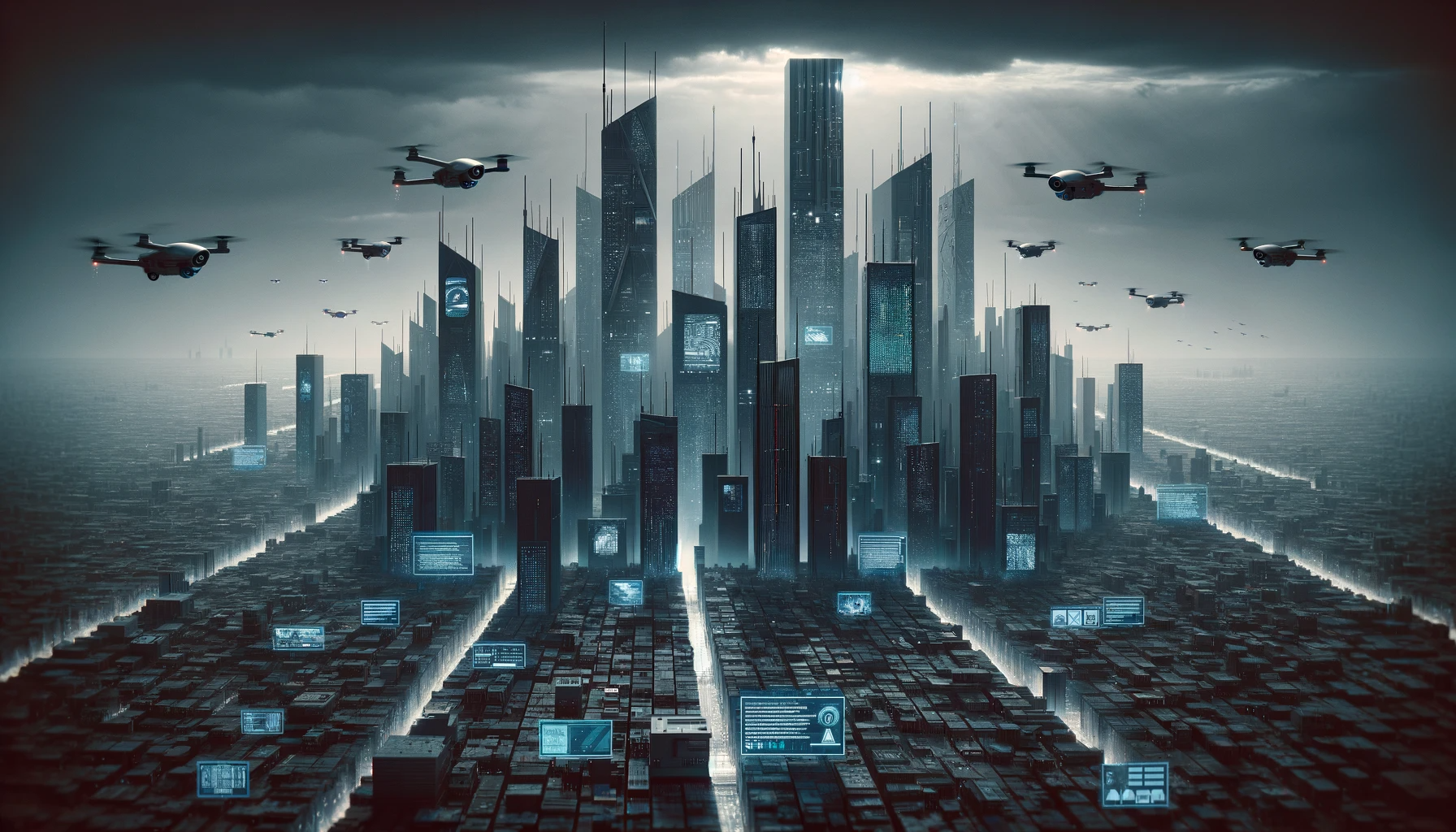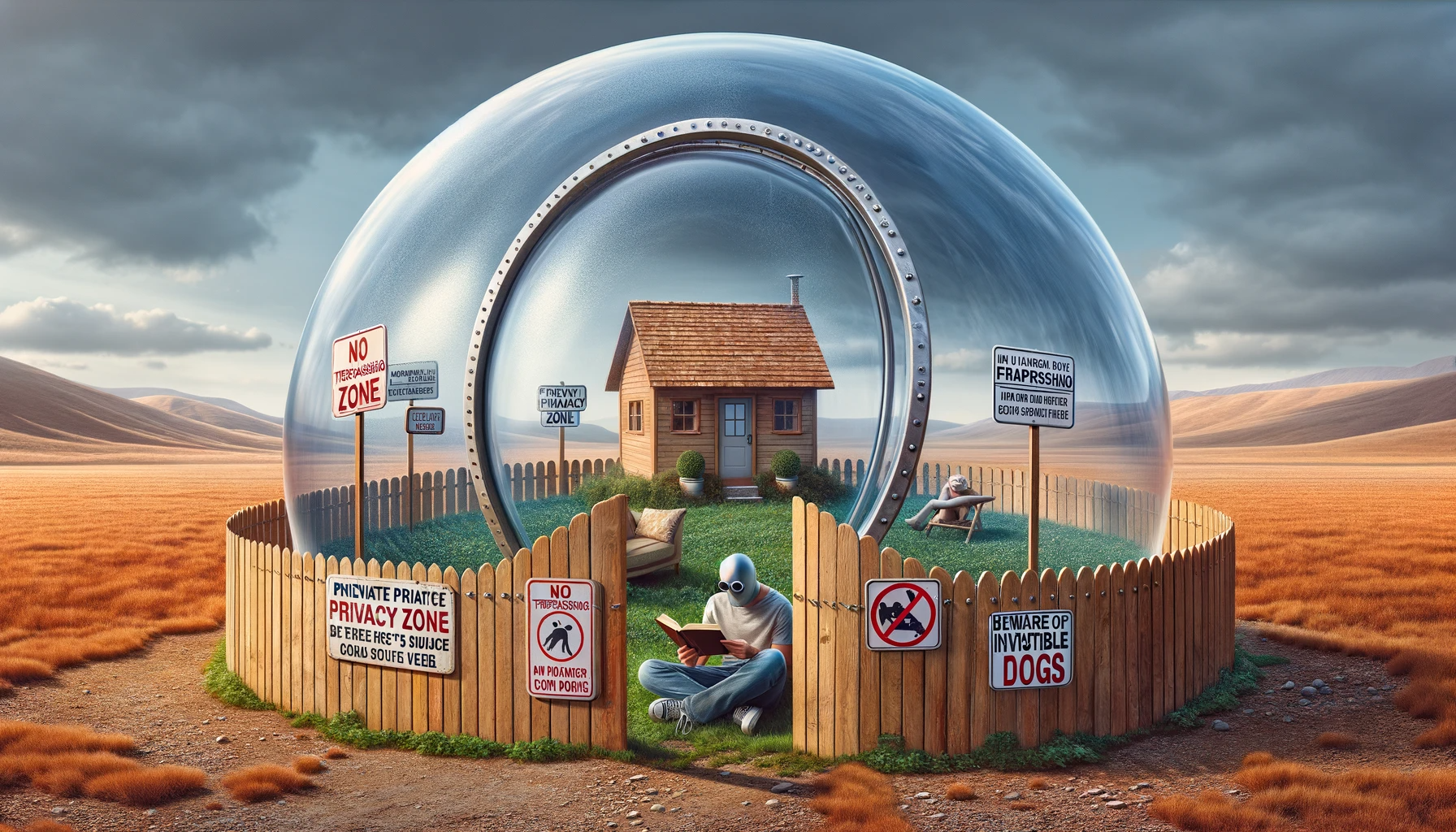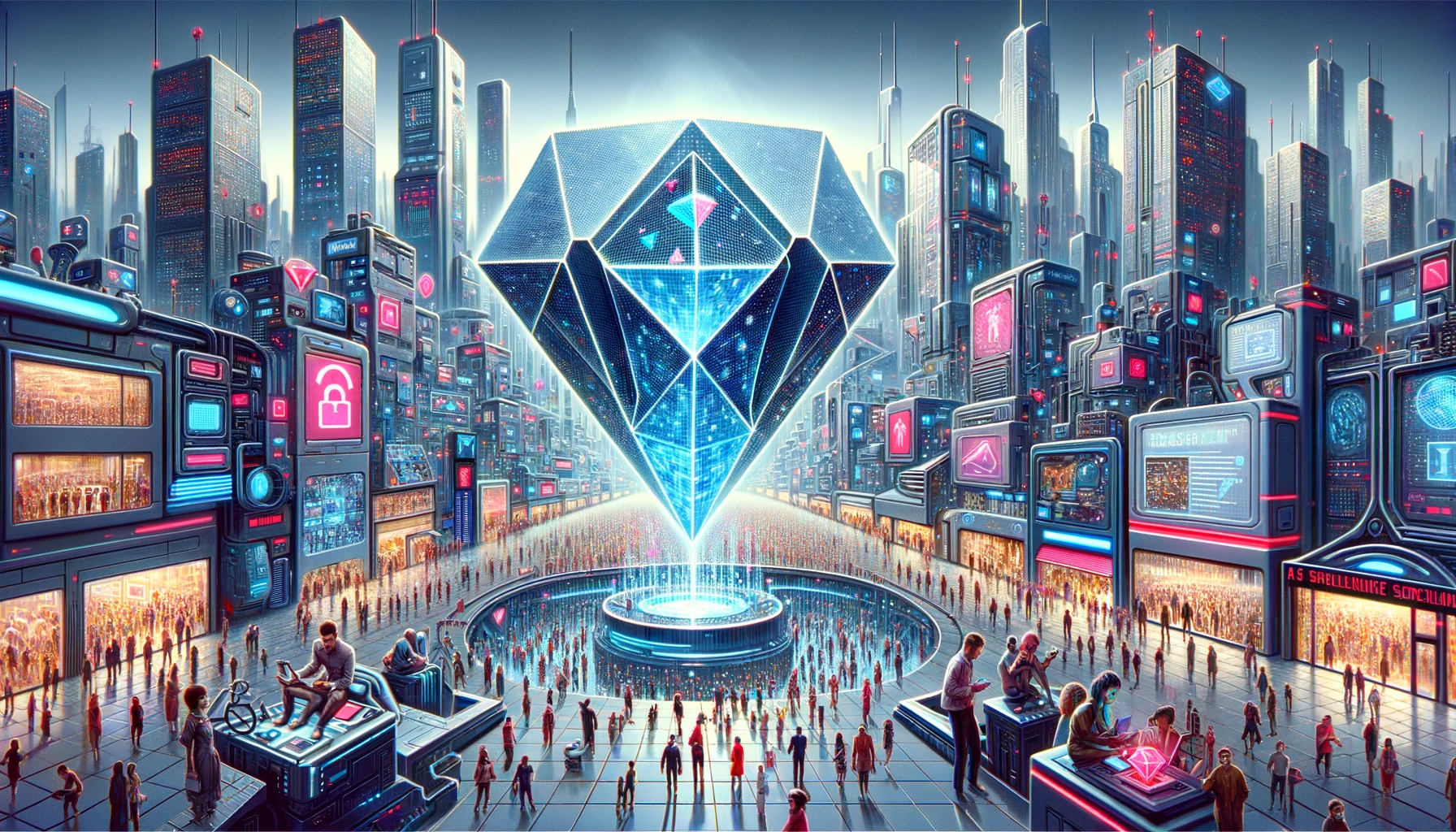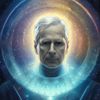Goodbye, Privacy!

"You have no privacy. Get over it!"
If you've been around tech long enough, you've probably run across former SUN Microsystems CEO, Scott McNealy's famous (or infamous) quote. That goes back to 1999 and it raised a boatload of hackles back in the day. Here's a more recent one for you.
"Privacy can’t be tolerated, lest, in some dark recess, a malcontent plots to unleash atomic weapons, biological weapons, computer viruses, antimatter, or any other technology that poses an existential threat."
That one is from my great friend, Robert J. Sawyer, science fiction novelist extraordinaire, from his latest book, "The Downloaded," currently an Audible Original bestseller. It's also an amazing audiobook with some incredible performances by Brendan Fraser, Luke Kirby, Vanessa Sears, Colm Feore, and Andrew Phung.
Anyhow, I was listening to the book (don't worry, no spoilers) and this quote about privacy appears. So I wrote it down. Now, this isn't the first time that Rob has brought up the idea of a society where privacy is considered a bad idea. He did so in another book, the Hugo award winning, "Hominids." I'm not going to tell you what Rob actually thinks about this. Read his books, listen to his interviews, or talk to him if you really want to know. What I want to do here is discuss the idea.
Is privacy a bad thing? Will there be a time when we can no longer afford the luxury of privacy? Are we already there?
Privacy in the modern world is something we already think about. Well, some people do and I suspect that, push come to shove, most don't really care, despite all this thinking about it. Nevertheless, some people do care a great deal and among them, some already mourn its passing as we willingly share our personal data with companies like Facebook or X (the site formerly known as Twitter) in exchange for free access to the services they provide. That's what Scott McNealy was really talking about when he made his pronouncement on the subject. He argued that with the increasing use of technology and the internet, people were essentially giving up their right to privacy. He believed that individuals needed to accept this reality and move on, rather than trying to cling to an outdated notion of privacy.
Sawyer's quote goes one step further, and his words, or at least the sentiment behind his words, are echoed by others who concern themselves with the dangers of existential risk in our modern world.
There was a time when privacy was an afterthought, a luxury that people could afford to overlook in exchange for the convenience of technology. But in recent years, the conversation has shifted. There is a growing awareness, for some, at least, that privacy is not a luxury, but a fundamental human right (more on that "fundamental" part later).
As technology evolves and advances, the argument goes, so does the need for privacy protection. We live in a world where our data is constantly being collected, analyzed, and used to predict our behavior. From social media profiles to online purchases, our digital footprints leave a trail for companies and governments to follow. One could argue that even if true privacy were attainable, it wouldn't be practical or even desirable.

Some, on one of those seemingly endless other hands, argue that privacy is a danger in the modern world. They believe that by giving up our right to privacy, we can prevent malicious plots and existential threats. I won't go into huge detail (aside from not wanting to bore you, I'm not an expert), but consider the following examples. Remember, I'm not saying these are immediate existential threats, though some may be, but what I want you to do is consider them vis-à-vis the privacy argument.
With rapid technological advancements, individuals, or small groups now have potential access to weapons of mass destruction (WMDs) such as biological weapons, nuclear technology, and advanced cyber weapons. In a world where privacy is sacrosanct, those with malicious intent could potentially develop or acquire these technologies undetected.
A more, all too mundane, argument has to do with cybersecurity. The rise of cyber threats, including advanced computer viruses and ransomware, poses significant risks to national security and infrastructure. Absolute privacy can make it difficult for authorities to monitor and prevent cyberattacks, especially those planned in hidden online spaces.
What about radicalization and extremism? Again, almost too mundane. The internet allows for the creation of private, encrypted channels where extremist ideologies can be shared and developed without scrutiny. This can lead to radicalization and planning of terrorist activities without the knowledge of law enforcement agencies.
Then, there are our old friends, crime, and warfare. As warfare and crime become more sophisticated, leveraging technologies like AI and deep fakes, detecting and countering these threats requires more proactive surveillance measures. Industrial and economic espionage can be facilitated by overly strict privacy laws, allowing the theft of intellectual property and trade secrets, which can significantly impact a nation's economic health and innovation capabilities. In a highly private world, such surveillance might be hindered, potentially endangering public safety.
I sort of mentioned biotech when I talked about WMDs above, but it bears looking at on its own. This field holds incredible potential, like curing cancer and other dreaded diseases, but also risks. In a completely private domain, individuals, or groups could experiment with genetic engineering or pathogens, potentially leading to accidental or intentional biohazards.
Anonymity is a byproduct of stringent privacy, and it can embolden individuals to engage in unlawful or harmful activities online, believing they are beyond the reach of law enforcement.
Some public intellectuals, such as Nick Bostrom and Yuval Noah Harari (to name just two), have even suggested that the only way to survive a global existential crisis would be to employ a "turnkey dictatorship" where a body like the UN, could have the power to effectively declare martial law and rule unopposed until the danger has passed. They're not advocating for this, but suggest it may be necessary for our survival.
Another science-fiction writer you should pay attention to, when considering these topics, is David Brin. His concept of "sousveillance," a term that combines the French words for "below" ("sous") and "watching" ("veillance"), is a fascinating and increasingly relevant concept in the modern world. It stands in contrast to "surveillance," which typically implies those in power (the watchers) observing those below (the watched). Brin covers all of this in his book, "The Transparent Society."
Sousveillance shifts the dynamic of observation, enabling those traditionally watched (the public or individuals) to observe and monitor those in positions of authority or power, such as governments, corporations, or law enforcement. To echo Oscar Goldman in the opening of the old TV series, "The Six Million Dollar Man", we have the technology.
The rise of smartphones, social media, and other digital technologies has made sousveillance more feasible. Individuals can now record and share instances of public interest or concern, such as law enforcement interactions, corporate malpractices, or political events, effectively turning the tables on traditional surveillance structures. This is a good thing.
Sousveillance can promote accountability and transparency, as it subjects the actions of the powerful to public scrutiny. This can be a deterrent against misuse of power, corruption, and other unethical practices. Furthermore, sousveillance aligns with democratic principles by potentially redistributing power and control. It gives citizens a tool to safeguard their rights and freedoms by keeping a check on those who hold power.

In Brin's envisaged society, which he describes as "diamond-shaped," there's an emphasis on mutual transparency. This structure contrasts with the traditional "pyramid-shaped" hierarchy, where the few at the top have significant power and visibility into the lives of the many below. In a diamond-shaped society, power, and surveillance capabilities are more evenly distributed. The 'wide middle' of the diamond indicates a robust, empowered middle class, with the upper and lower points representing the elite and the less fortunate, respectively.
Sounds great, right? Except that while sousveillance can be seen as a tool for empowerment and accountability, it also raises serious privacy concerns. The widespread ability to record and share information about individuals, including those in positions of power, can lead to privacy violations and other ethical dilemmas, bringing us right back where we started from.
This isn't me saying that I endorse or support the idea that privacy is inherently dangerous in the modern world. Nor do I take the opposite viewpoint, that privacy is somehow sacrosanct and a fundamental human right. Under the UN's Universal Declaration of Human Rights (UDHR) and the International Covenant on Civil and Political Rights (ICCPR), it most definitely is. The declaration says that the right to privacy must protect individuals from unwarranted interference with their personal and private lives, ensuring they can express themselves freely and maintain their autonomy. Still, just as there's a middle ground between freedom of speech and (at least in Canada) hate speech, I feel like there's a middle ground here and that the ground is always busy shifting under our feet.
I've gone back and forth on whether privacy is a good or a bad thing and how we might examine the concept with more nuance, but let me try to wrap this up. It's been pointed out to me, somewhat forcefully, that it is misguided to assume that privacy is a luxury that can be sacrificed in the name of national security or global safety, and that maintaining privacy often goes hand-in-hand with that need.
Remember the United States' dragnet surveillance programs, revealed by Edward Snowden in 2013? I know, a lifetime ago. That bombshell demonstrated that mass surveillance could actually be counterproductive to national security. These programs not only violated the privacy of millions of innocent citizens but also strained international relations, damaged the global digital economy, and undermined trust in democratic institutions. In contrast, targeted, evidence-based surveillance, conducted under strict judicial oversight and with adequate transparency, was said to be a more effective and sustainable means of addressing security concerns.
Like spying, I suppose. 007, you know what to do.
And that's just it. Snowden's bombshell simply brought an open secret into the light. Most people I knew, myself included, shrugged and thought, "well, of course this kind of surveillance is common," then went about our lives, watching the fallout with little surprise. Perhaps the real answer is somewhere between "you have no privacy" and "sousveillance". Somebody is watching and listening. Make no mistake.
Maybe we should all be watching and listening.
Maybe the amount of privacy we need, and deserve, is to be found in the knowledge that, when the situation calls for it, we have no privacy.
What do you think? Please, feel free to leave a comment and continue this conversation here. Or, even better, share this post on your own social media feeds and discuss it there.
